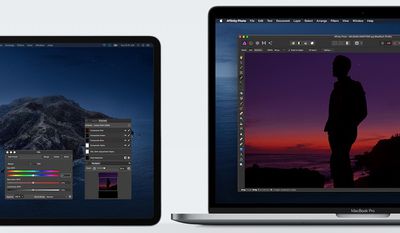iPad and MacBook Production Reportedly Delayed Due to Global Chip Shortage
Apple is facing a global shortage of certain components for some of its MacBook and iPad models, causing the Cupertino tech giant and its suppliers to postpone production of the products, according to a new report from Nikkei Asia.

According to the report, MacBook production is being hindered due to the shortage of chips mounted onto the circuit board before final assembly, which is a key step in the overall production process. iPad production is being impacted due to display and display component shortages, the report adds.
In response to the pushed back production, Apple has postponed component orders for the two devices to the second half of the year. While MacBook and iPad production is being directly impacted, iPhone production is so far not affected. However, industry sources say that supplies for iPhone components are limited.
Production plans for Apple's iconic iPhones have so far not been affected by the supply shortage, although the supply of some components for the devices is "quite tight," according to two sources. Overall, the component shortage remains a supply chain issue for Apple and has not yet had an impact on product availability for consumers, Nikkei has learned.
Apple is widely expected to be launching new iPad Pro models and possibly redesigned MacBook Pros with Apple silicon in the coming months. Bloomberg has reported that new iPad models with drastically improved performance and a new mini-LED display are simply weeks away from launch.
While Nikkei doesn't specify which iPad and MacBook models are being impacted due to the shortage, it certainly seems plausible that the delayed assembly of the products could result in some form of a delayed product announcement from Apple.
Popular Stories
Apple turns 50 this year, and its CEO Tim Cook has promised to celebrate the milestone. The big day falls on April 1, 2026.
"I've been unusually reflective lately about Apple because we have been working on what do we do to mark this moment," Cook told employees today, according to Bloomberg's Mark Gurman. "When you really stop and pause and think about the last 50 years, it makes your heart ...
In the iOS 26.4 update that's coming this spring, Apple will introduce a new version of Siri that's going to overhaul how we interact with the personal assistant and what it's able to do.
The iOS 26.4 version of Siri won't work like ChatGPT or Claude, but it will rely on large language models (LLMs) and has been updated from the ground up.
Upgraded Architecture
The next-generation...
Apple plans to announce the iPhone 17e on Thursday, February 19, according to Macwelt, the German equivalent of Macworld.
The report, citing industry sources, is available in English on Macworld.
Apple announced the iPhone 16e on Wednesday, February 19 last year, so the iPhone 17e would be unveiled exactly one year later if this rumor is accurate. It is quite uncommon for Apple to unveil...
While the iOS 26.3 Release Candidate is now available ahead of a public release, the first iOS 26.4 beta is likely still at least a week away. Following beta testing, iOS 26.4 will likely be released to the general public in March or April.
Below, we have recapped known or rumored iOS 26.3 and iOS 26.4 features so far.
iOS 26.3
iPhone to Android Transfer Tool
iOS 26.3 makes it easier...
The iPhone 18 Pro Max will feature a bigger battery for continued best-in-class battery life, according to a known Weibo leaker.
Citing supply chain information, the Weibo user known as "Digital Chat Station" said that the iPhone 18 Pro Max will have a battery capacity of 5,100 to 5,200 mAh. Combined with the efficiency improvements of the A20 Pro chip, made with TSMC's 2nm process, the...




















